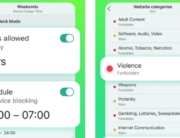Last August, Anitha (name changed to protect identification) required some funds urgently. The lockdown had been a challenging period for the Hyderabad-based media professional, particularly regarding the front that is financial. Even while she approached formal loan providers for a personal bank loan, some doom scrolling on the smartphone led to a blaze of adverts with a single promise — that of an instantaneous loan.
“They appeared to be a saviour for me at that phase of my entire life,” she claims over the telephone. “I instantly took one of these simple loans.” The method had been simple and easy fast. All she needed to do was scan her Aadhaar card and PAN quantity and then click a selfie and upload these from the application. “There had been no OTP-based verification or also a requirement for thage ag e signature. They don’t also have signature regarding the account owner,” she says.
Minimal did she understand she could have hell to fund choosing this kind of convenient loan provider.
It had been all good for as long as she paid her dues on time. “Because of some difficulties with the bank”, she missed one period. Anitha ended up being happy to also spend a belated cost. She started getting phone calls and WhatsApp messages from recovery agents before she could put that in motion. The phone phone calls became progressively more menacing and insulting. “They began becoming abusive. It had been two to three months of constant harassment. I happened to be almost suicidal, ” she recalls.
“They expected me to respond to the telephone on a regular basis. I became in state of illusionary fear. All because I took funds from one of these simple apps.” Anitha just isn’t the one that is only has thought just like a marked individual after using that loan through apps. Recent years months have observed a few stories that are such. While those people who have survived this experience have actually provided their stories, there have been some borrowers whom could maybe not use the harassment and humiliation. They presumably killed on their own since the debt trap forced on it constant shaming that is social perpetuated by the apps that offered these loans.
These tales have actually caught the interest associated with the Reserve Bank of India (RBI). Earlier in the day this week, it put up a six-member group that is working manage digital lending through mobile apps, with a give attention to customer security, privacy and information safety. The team is anticipated to submit its report in 90 days. Digital financing or app-based loans is a four-year-old sensation in Asia. It arrived to prominence globally as “payday loans” or “fringe banking”.
Genuine electronic loan providers, supported by their non-banking company that is financialNBFCs), disburse small-ticket loans (from Rs 10,000-3 lakh) to specific borrowers. Most of their work — from assessing the creditworthiness of borrowers to know-your-customer (KYC) verification, loan disbursal and EMI collection — is performed online. The “procedural ease” of having a short-term loan makes these players popular among young experts. The top-10 digital loan providers — including EarlySalary, KreditBee, LoanTap and CASHe — account for over 60% of India’s fintech NBFCs. These players, along side some more, disburse microloans rs that are worth crore each month — and possess cumulatively done close to Rs 20,000 crore since inception. These genuine loan providers provide loans for tenures ranging between three and 3 years.
Then you can find loan providers whom run into the shadows.
Relating to fintech industry sources, a few loan providers just register an entity underneath the businesses Act, develop a software and begin commercial financing https://personalbadcreditloans.net/reviews/loanmart-loans-review/. They peddle 7-30-day loans at high-interest prices — usually 200-500% annualised. A lot of these apps, present investigations by NGOs and advocacy groups like Cashless customer reveal, are Chinese white-labelled apps with Indian names.






